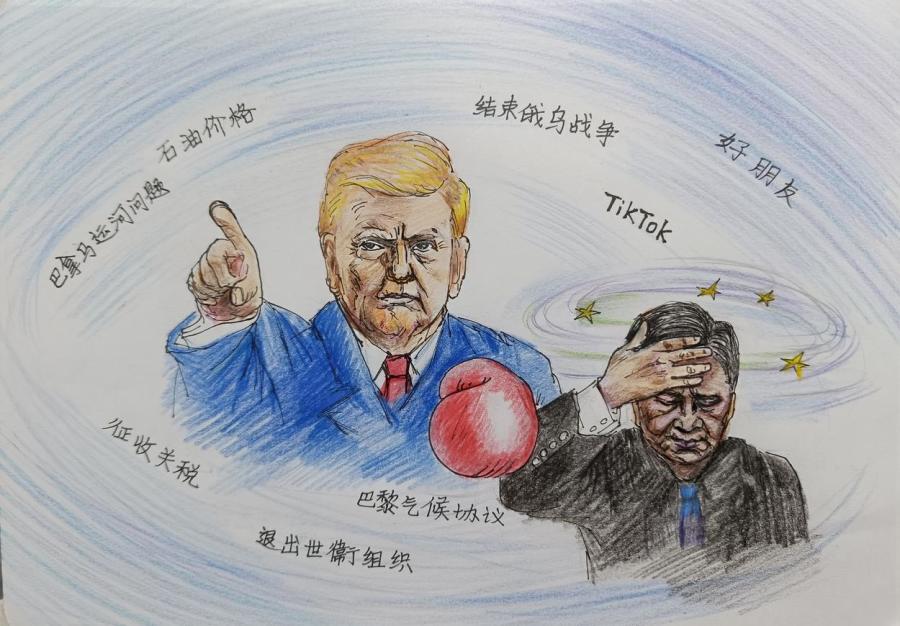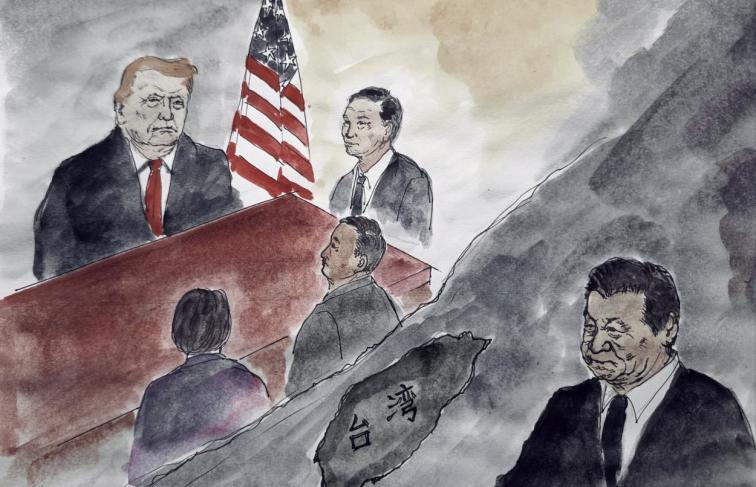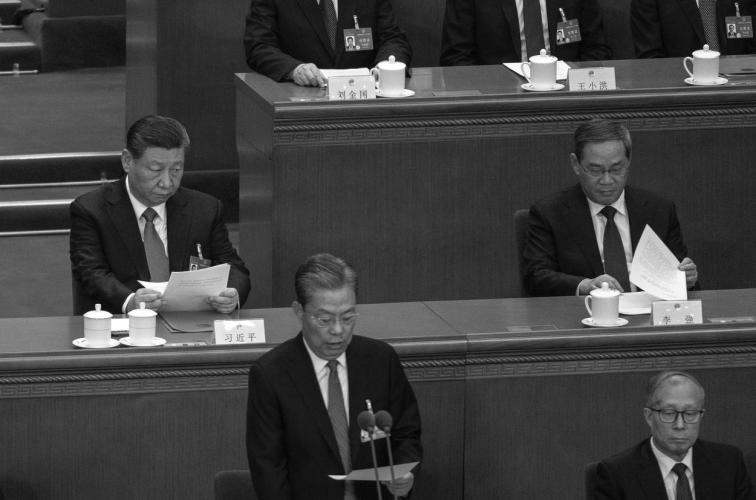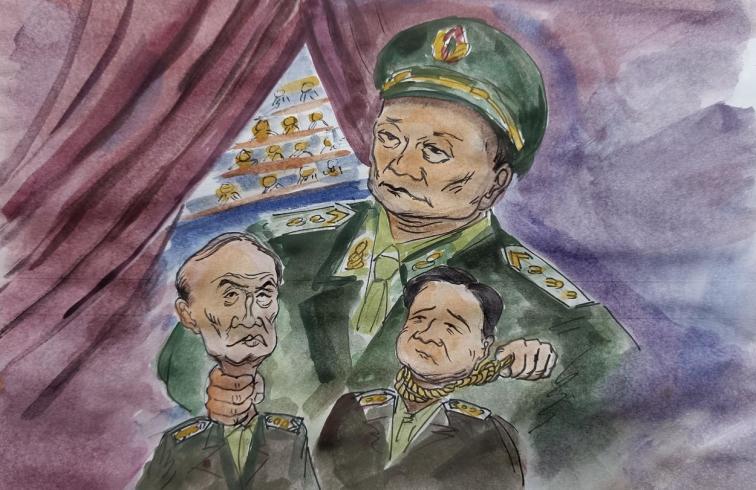Trump's soft and hard tactics leave the CCP disoriented. (Image by Qing Yu / People News)
[People News] According to a report from the People's Daily, just as the senior leadership of the Chinese Communist Party was convening internal meetings to discuss how to address the tariffs imposed by the Trump administration, U.S. President Trump announced on Monday (April 7) that he would impose an additional tariff of up to 50% on Chinese goods, disrupting Beijing's planned response strategy.
As reported by Kan Zhongguo, Bloomberg cited several informed sources indicating that over the weekend, the senior leadership of the Chinese Communist Party, including heads of various departments and financial regulatory agencies, held a closed-door meeting to discuss stabilizing the economy amid escalating U.S.-China trade tensions. This included the early implementation of previously planned stimulus measures, focusing on boosting consumption, encouraging childbirth, and providing subsidies for certain export products.
One source revealed that the meeting also discussed the creation of a 'stability fund' to support stock market performance, and considered moderately easing borrowing costs and bank reserve ratios to inject liquidity into the market. Analysts from China Galaxy Securities noted that with ongoing pressure from the U.S., China's domestic demand is under increasing strain, and it is anticipated that the Politburo of the Communist Party of China will introduce an expanded domestic demand policy at its April meeting, potentially amounting to 15 trillion to 20 trillion yuan.
However, just as Beijing was intensively strategizing, President Trump took to social media on Monday morning to state that if Beijing does not cancel its 34% retaliatory tariffs against the U.S. by April 8, the U.S. will impose an additional 50% tariff on Chinese products starting Wednesday and will suspend any negotiation arrangements with the Communist Party.
On Monday, A-shares experienced a significant decline, with the three major indices—the Shanghai Composite, Shenzhen Composite, and ChiNext—closing down by 7.34%, 9.66%, and 12.5%, respectively. Notably, the Shanghai Composite index fell below the 3,100-point threshold, marking its largest single-day drop in five years. Additionally, the Hang Seng Index dropped by 13.22%, the largest single-day decline since 1997.
At the close on Monday, the Shanghai Composite Index was at 3,096.58 points, down 245.43 points, a decrease of 7.34%; the Shenzhen Component Index stood at 9,364.5 points, down 1,001.23 points, a decrease of 9.66%; and the ChiNext Index was at 1,807.21 points, down 258.2 points, a decrease of 12.5%. The total trading volume for the Shanghai and Shenzhen markets reached approximately 1 trillion 5,877.99 billion yuan (RMB), an increase of 4,501.79 billion yuan compared to the previous trading day. At the close, only 106 stocks saw gains, while 5,284 stocks declined.
As A-shares fell sharply, the renminbi (RMB) against the US dollar also hit a new low in over two months. According to Reuters, the onshore RMB to USD exchange rate dropped to 7.3165 during morning trading on Monday (April 7), marking the weakest level since January 20. The offshore RMB to USD exchange rate was 7.3255, down approximately 0.41%.
President Trump’s unexpected announcement of an additional 50% tariff on Chinese products disrupted Beijing's planned response strategy.
Recently, the official Chinese media outlets Xinhua News Agency and the People's Daily released a series of articles asserting that the Chinese Communist Party (CCP) is fully capable of 'resolutely defending national interests' and is ready for further sanctions from the United States. Last Friday, the CCP declared that effective April 10, it would impose a 34% tariff on all imports from the United States and restrict the export of seven categories of rare earth materials as a countermeasure.











News magazine bootstrap themes!
I like this themes, fast loading and look profesional
Thank you Carlos!
You're welcome!
Please support me with give positive rating!
Yes Sure!